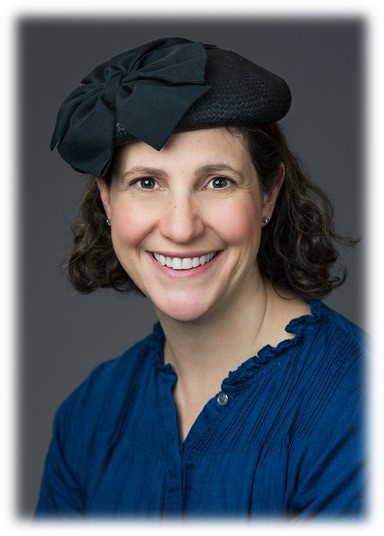Parshot/Festivals
Finding your why, not your what

Have you ever heard of Samuel Pierpont Langley? I hadn’t before listening to author and organisational consultant Simon Sinek talk about “How great leaders inspire action”.
In the early 20th century, Samuel Pierpont Langley was on the path to be the first person to invent a flying machine. He had every tool at his disposal – money, support, a Harvard education, and great market conditions. The New York Times followed him around everywhere and people were rooting for Langley. So why haven’t I heard of Samuel Pierpont Langley?
A few hundred miles away in Dayton, Ohio, Orville and Wilbur Wright had none of what we consider to be the “recipe for success”. They had no money. Not a single person on the Wright brothers’ team had a college education, including Orville and Wilbur. The New York Times didn’t follow them around.
So why did they succeed? Sinek suggests that the recipe for success is leading from the why. Most people and most organisations begin with what. They know what they want to do – what their product is and what they are doing. Most know how they will do it – what the strategy and plan is to achieve the what. But very few people know why they do what they do. As Sinek suggests, we should strive to “to answer why: what’s your purpose? What’s your cause? What’s your belief? Why do you get out of bed?”
According to Sinek, this is the reason why Orville and Wilbur were successful. Langley was in pursuit of a result: being rich and famous. The Wright brothers were driven by a cause, by a purpose, by a belief. And on 17 December 1903, the Wright brothers took flight.
I was thinking about the ethic of leading from why as I thought of the Chanukah story. Yehuda Hamaccabee is actually remembered much more for his what. The First Book of Maccabees praises Yehuda’s valour and military talent, suggesting that these qualities made him a natural choice. We remember that he led a small army. As we recall in Al HaNisim in our liturgy:
מָסַרְתָּ גִבּורִים בְּיַד חַלָּשִׁים וְרַבִּים בְּיַד מְעַטִּים (You delivered the strong into the hands of the weak, the many into the hands of the few.)
He led the Jewish people to reclaim and rededicate the temple. But what we don’t talk about as much is that his reign of leadership was short lived. The priesthood in the aftermath of the Maccabean victory was corrupt and a puppet of the non-Jewish king.
Within two years, Judah the Maccabee was dead and many of his men had been executed. This is the likely reason why chazal were resistant to creating a tractate of Talmud dedicated to Chanukah. I know very little about his why.
Our celebration of Chanukah and the way in which we ritualise it has little to do with Yehuda Hamaccabee’s military victory. If it did, perhaps we would celebrate Chanukah by dressing up as soldiers, with swords and shields, and by re-enacting the victory.
Instead, we celebrate by lighting candles to commemorate the story of the oil. The miracle of one pach, one jar of shemen that lasted for eight days. This is the why of Chanukah.
In fact, the Gemara (Shabbat 21b) asks, “Mai Chanukah?” (What is Chanukah?) This is actually a surprising question. Nowhere else does the Gemara ask what. “Mai Pesach? Mai Sukkot?”
What’s more, people had already been celebrating Chanukah for hundreds of years by the time this question was asked. The question of the Gemara becomes even stranger once you realise that the Gemara has already discussed many details of the holiday. We have already learned about the basic mitzvah of lighting, the method of lighting, and the debate between Beit Hillel and Beit Shammai as to whether we begin with eight candles and count down, or one and count up. And then suddenly, the Gemara asks, “Mai Chanukah?”
The question cannot be “What is Chanukah”, but why. Why do we celebrate? Rashi reformulates “Mai Chanukah”, and explains, “Al eyzeh nes? (What’s the underlying miracle?) Why did the rabbis establish Chanukah as a holiday?”
The Gemara answers that we celebrate Chanukah because they found “but one cruse of oil that was set in place with the seal of the high priest, but there was in it only [enough] to light a single day. A miracle was done with it, and they lit from it for eight days.”
When we celebrate Chanukah, we are celebrating the courage and faith that the people had in searching for the one jar, and then against all odds, in lighting the menorah.
This is the why of the holiday. It’s an opportunity to reflect on how you want to be remembered and, therefore, how you will live your life. As Sinek points out, Martin Luther King Jr inspired thousands of followers not by his what, but his why. He gave the “I have a dream” speech, not the “I have a plan” speech.
So on this Chanukah, let’s get back to your why. Find your inner flame, and let it dance boldly, lighting up our world. This is a world that needs all your light.
- Rabba Sara Hurwitz, the co-founder and president of Maharat, the first institution to ordain Orthodox women as clergy, also serves on the rabbinic staff at the Hebrew Institute of Riverdale in New York City.
